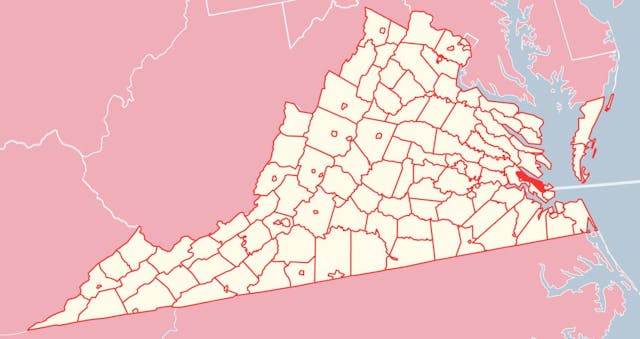Rehabs in York
York County was formed in 1634 in Virginia, US. It is a populous province with 70,503 residents. Yorktown is its county seat.
According to County Health Rankings & Roadmaps (CHR&R), 10 people died from drug overdoses in 2019. Meanwhile, 18% of residents abused alcohol.
As shown above, society was not affected much by substance addiction since York County rehabs helped them to overcome abuse.
Drug and Alcohol Evaluation
The first meeting with a specialist begins with an initial screening. It involves interview that helps specialists to collect the necessary information about a patient’s medical history.
Then, the doctor, finding out what stage of addiction the patient is in, sends him/her to the appropriate treatment program.
Rehab Programs in York County
Rehabs in York County provide both inpatient and outpatient treatment programs. They include various healing methods, such as peer and motivational support. Clinics address their services for each group of society.
Detox
Detox is a process that cleanses the body of substances without causing pain. In other words, specialists use specific methods and medicines to control withdrawal symptoms. Those may be mild or severe. That is why people remain in facilities during the whole procedure.
Inpatient (IP)
IP is a strict level of care that offers 30,60, and 90-day residential care. Since each patient is unique, they may need short-term or long-term treatment. However, this only becomes clear during the cure. So, doctors use developed methods to help a person recover quickly.
It becomes possible when they reach some level of sobriety. For this reason, this stage mainly includes in-person healing methods. It allows experts to make a better cure plan by following their behavioral changes throughout the treatment.
Outpatient (OP)
In this province, the OP operates through consultations and therapies. Through this, experts determine the strengths of each individual. Developing these aspects in the right direction helps patients to overcome abuse.
People also participate in motivational services that allow them to change their addictive behavior. It combines the ideas of recovery and self-direction.
Intensive outpatient (IOP)
People aged 18 and more with a severe chemical addiction may take part in IOP. This level, providing 9 hours of sessions per week, is more intensive care than OP. Patients with signs of co-occurring mental illness are also eligible for IOP.
Each member has access to an in-person counseling meeting once per week.
“Colonial Behavioral Health” clinic offers OPs services for everyone with substance use disorders. They learn coping skills and increase their emotional and physical health. The length of treatment is 16 weeks. Here is their contact information:
3804 George Washington Memorial Hwy.
Yorktown, VA 23692
Phone: (757)-898-7926
Specialty Rehab Programs
In addition to essential therapies and counseling, there are specific services. Those are designed for particular groups in society:
These programs serve, at first, adult, pregnant, and parenting women struggling with substances. Attending 12-16 weeks of outpatient care helps them understand the effects of chemicals on their lives. Women learn to get coping skills and overcome stress and misuse.
The next are veterans, the military, and their families with substance use disorders. Because of their stressful profession, they often have mental health problems with dependence and abuse. For that purpose, clinics offer them healing educational courses, including various solutions.
Prices and Payment Options
Healing from alcohol and drug dependence consists of several stages. Therefore, patients have to pay for each of them separately. The residential phase is the most expensive, as housing costs are included in the fee.
In contrast, in the case of outpatients, people pay only for therapies and consultations. For that reason, it is affordable. For instance: a one-hour individual therapy meeting costs $84, while the screening charges $5.
However, almost every community member can cover the costs with various payment options. Among them are private insurance, Medicare, and Medicaid.
Forcing Teens Into Rehabilitation
When teens start to misuse alcohol and drugs, parents force them to enter rehab centers. Although parents’ action is legal according to the rules of Virginia, they have alternative ways to help their children.
So, clinics provide a unique program that is called SBIRT-Youth (Screening, Brief Intervention, and Referral to Treatment). It is an evidence-based practice based on SAMHSA. It is for children and teens who are at risk of chemical addiction.
Identifying the dependent behavior of minors in the early stages is the foremost step. That is what can prevent further danger in the life of teens.

